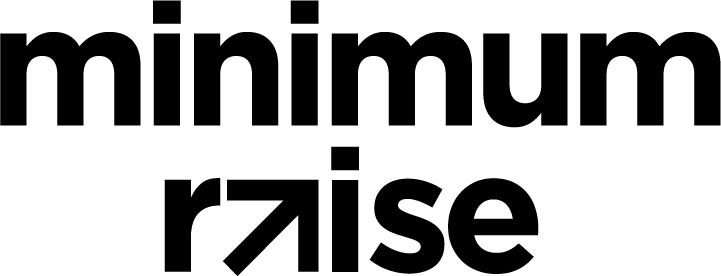Job Description
Job Title: Teacher Elementary – Kindergarten
Company: Gwinnett County Public Schools
Location: Winn, MI
Pay: $59146 per year
AI Pay Analysis: The hourly rate of approximately $28.41, based on an annual salary of $59,146 for a “Teacher Elementary – Kindergarten” in Winn, MI, appears to be somewhat competitive when compared to national standards for kindergarten teachers, whose average annual salary ranges from $50,000 to $60,000, depending on factors such as experience, education, and local cost of living. However, it is important to consider the specific local context; Michigan’s average salary for kindergarten teachers is roughly in line with this figure, but varying by district and city. Thus, while this salary offers a reasonable compensation, it may be viewed as slightly below the market average for urban districts or those with higher living costs. Overall, while it reflects a fair entry-level salary, its competitiveness could vary based on local economic conditions and individual district funding.
Job description:
License and Certification Qualifications: Candidates must fulfill the certification requirements set forth by the State of Georgia for the relevant field of education.
Education Qualifications: A Bachelor’s degree in a pertinent field of education from a college or university approved by the Professional Standards Commission (PSC) is mandatory.
Experience Qualifications: Prior teaching experience is preferred.
Skills Qualifications:
– Comprehensive understanding of the Gwinnett County Public Schools (GCPS) Academic Knowledge and Skills (AKS) curriculum, with a deep knowledge of the content area of certification.
– Proficiency in techniques for integrating curriculum, understanding GCPS policies, and employing effective instructional practices.
– Ability to comprehend the teaching and learning processes and to incorporate technology to enhance student learning.
– Strong collaboration skills with administrators, colleagues, central office staff, students, parents, and the community.
– Exceptional oral and written communication skills, coupled with effective interpersonal skills.
Primary Responsibilities:
The role involves planning appropriate educational experiences for students aligning with the district’s Academic Knowledge and Skills (AKS) curriculum, while fostering an environment conducive to the intellectual, physical, social, and emotional development of students.
1. Exhibit expertise in the subject matter.
2. Develop and prioritize instructional objectives based on the AKS curriculum:
a. Identify prerequisite skills and knowledge for successful learning.
b. Plan instruction to promote mastery of these prerequisite skills.
c. Analyze student work and assessments to tailor instructional needs.
d. Prepare comprehensive lesson plans aligned with AKS objectives for all students.
e. Design suitable assessments for evaluating student learning.
3. Evaluate, select, and adapt resources and activities:
a. Review and utilize district core materials.
b. Choose materials that correspond with the AKS and meet learners’ needs.
c. Incorporate resources that are supported by scientifically-based research on effective instruction.
4. Provide an initial focus for each lesson:
a. Clearly communicate learning objectives.
b. Connect lesson content to students’ prior knowledge and real-world applications.
c. Engage students through active involvement.
5. Organize content effectively for lesson presentations:
a. Present information in a logical and structured sequence.
b. Organize content delivery based on students’ needs and material complexity.
c. Follow a research-informed organizational plan for lesson structure.
6. Employ scientifically grounded instructional strategies to facilitate learning:
a. Assess and provide feedback on students’ understanding of AKS.
b. Foster collaborative learning opportunities.
c. Offer numerous chances for guided and independent practice.
d. Instruct students in essential vocabulary related to content.
e. Utilize diverse nonverbal and visual representations for content delivery.
f. Teach summarization skills to enhance comprehension.
g. Build students’ literacy in reading and writing across disciplines.
h. Access and develop students’ background knowledge.
i. Utilize questioning and prompting techniques.
j. Effectively integrate technology for planning, teaching, and assessment purposes.
k. Implement inquiry-based problem-solving strategies across all content areas.
l. Instruct students to set and pursue personal academic goals.
m. Encourage comparative and contrasting skills regarding knowledge and content.
7. Conduct formative assessments to monitor student progress towards AKS objectives:
a. Use various techniques to track learning progress.
b. Adjust instructional plans based on assessment results.
c. Provide criteria for self-assessment of progress toward objectives.
8. Facilitate summative assessments to evaluate student achievement:
a. Assess learning against AKS goals.
b. Ensure assessments are suitable for the diverse learner population.
c. Maintain accurate assessment records for each student.
d. Communicate assessment outcomes effectively.
e. Utilize assessment data to inform future instructional strategies.
9. Organize the learning environment to enhance student engagement:
a. Arrange the classroom to support effective learning.
b. Ensure smooth transitions between activities.
c. Manage organizational tasks such as attendance, material distribution, and homework collection.
10. Foster a conducive atmosphere for learning:
a. Clearly articulate behavior expectations.
b. Monitor and respond to student behavior appropriately.
c. Address inappropriate behavior effectively and impartially.
d. Handle sensitive situations discreetly while promoting inclusivity.
e. Maintain mutual respect in teacher-student relationships.
f. Convey enthusiasm and warmth in interactions.
11. Engage in ongoing professional development:
a. Implement new knowledge and skills in lesson planning and delivery.
b. Show evidence of progress toward professional growth goals.
12. Uphold professional responsibilities and serve as a role model:
a. Utilize clear and proper communication, both written and oral.
b. Exhibit punctuality and reliability in attendance and assigned duties.
c. Submit necessary documentation accurately and on time.
d. Prepare comprehensive plans for substitute teachers.
e. Demonstrate willingness to share resources and ideas collaboratively.
f. Support the objectives and activities of the school through teamwork.
g. Promote positive communication between school and home.
13. Undertake additional duties as assigned.
Physical Demands:
The employee must be able to sit for extended periods, as well as engage in speaking, listening, standing, and walking. The role may require the use of hands for tasks such as handling materials and reaching. Occasional requirements include stooping, kneeling, or crouching, and the ability to lift or move up to 25 pounds. Specific vision capabilities required for this position include close vision, distance vision, color vision, depth perception, and the ability to adjust focus. Reasonable accommodations may be provided to enable individuals with disabilities to perform essential functions.
Job Posting Date: Sat, 01 Feb 2025 06:33:13 GMT
Apply now!





